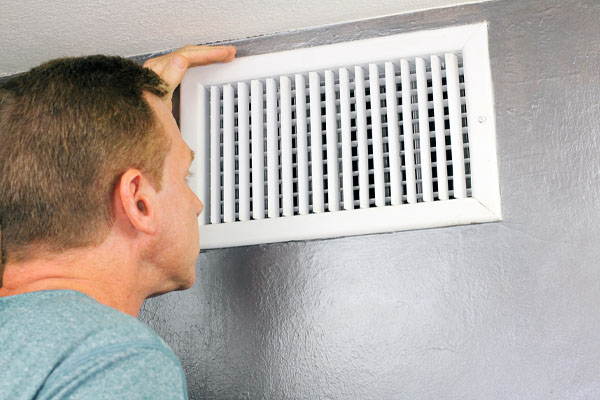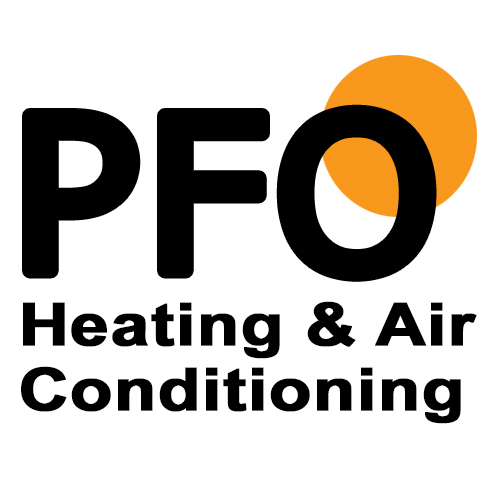
Many homeowners try to save on their heating and air conditioning bills by closing the vents in unoccupied rooms. There is a simple logic behind keeping wall vents open or closed. Heated or cooled air will be redirected to a room where it is needed since the vents are closed to these unused rooms. This results in the optimal use of conditioned air. This may sound logical, but it could cost you more down the line. Moreover, it can also result in HVAC system damage. This article discusses why you should keep your wall vents open or closed.
Reasons To Avoid Closing Registers For Temperature Control
Contents
Keep reading to explore the reasons behind keeping the registers open. It also includes several energy-saving tips with the utilization of HVAC-zoned solutions.
Understanding How HVAC Ventilation Works
Homes likely have a closed system that filters the air to ensure it is clean and safe to breathe. As the house is essentially closed, the air stays motionless if there is no external force like a fan to move it. A blower fan helps circulate the air inside homes. A home with a forced-air HVAC system means the air moves to condenser coils to cool it or is moved from the heater, like a furnace, where the air is heated and circulated throughout the home.
The fan motor may be variable or fixed, depending on your installed HVAC system. A variable motor adjusts itself automatically per the pressure it senses. On the other hand, a fixed motor runs steadily no matter the indoor air pressure. Fixed motors are also cheaper and don’t have a complex set of parts to operate. If your HVAC system has a fixed motor, you can expect it to run harder to move and redistribute air around a limited area.
Why Closing Your Air Registers Isn’t Recommended
 If you want to save on energy costs, closing the vents is not a money-saving strategy you should do. Listed below are some reasons to avoid it:
If you want to save on energy costs, closing the vents is not a money-saving strategy you should do. Listed below are some reasons to avoid it:
Your HVAC System Doesn’t Work the Way You Might Think
HVAC systems don’t have a built-in sensor that detects if the registers are open or closed. Therefore, it will continue using the same energy level to generate the same volume of cold or warm air. The HVAC unit only maintains the thermostat setting, so it won’t slow down as long as the thermostat setting is in place. This means you will still pay for the same energy amount.
Pressure Imbalance Will Be Created
Closing the registers to try and save energy means you are closing the supply register. The return register, which draws the air from the room, remains open. The return register takes air from an enclosed space, creating a lower pressure. The depressurization in the room forces the outdoor air to infiltrate it via small gaps, cracks, or holes. This causes the indoor air temperature to destabilize, which can increase or decrease depending on the outdoor air’s temperature. This can also cause indoor air quality to degrade.
Uneven Room Temperature
The HVAC system is equipped with internal dampers. These components adjust to control the air supply volume in every room. Adjusting it is needed because it ensures enough airflow volume for your HVAC system to maintain consistent temperatures. The distance between the room and the blower doesn’t matter. Closing one or more supply registers causes a disruption in airflow balance and temperatures in the rooms and the whole system. This imbalance may result in too much airflow in the rooms that are closest to the blower, while those that are farther away will experience a reduced amount of airflow.
Increased Risk Of Wear-And-Tear To The System
Closed supply vents increase static pressure in the supply ducts. As a result, the pressure in the system blower also increases, placing more strain on it. A system blower that continues to work under increased stress tends to give in to wear and tear and have a shorter service life.
What To Do To Save On Your Home Heating & Cooling Costs

To start, remember that the size of your cooling and heating system depends on measurements of your home and other factors. An HVAC size that matches your home’s area means it can heat or cool that specific amount of space. Closing the vents means you reduce the amount of space, so the system cannot work as it should.
Consider using a system with zone temperature control if you want to save money while still maintaining comfort in your home. This system lets you divide your home into zones. For instance, one zone can be the rooms upstairs, and the rooms downstairs can be another zone. Zone temperature control allows you to maintain different temperatures in each zone.
You can also adjust your thermostat settings to one that allows your HVAC system to work at the minimum or utilize gas so the indoor air can circulate. Use window treatments so the indoor temperature is maintained. Also, leave the doors to rooms open if they are too cold or too warm so the air can be distributed evenly.
Consider installing a ductless HVAC unit to help your central HVAC system. This type of system offers zoned control, so you can install them in rooms that you frequent. This allows you to make thermostat adjustments on your central HVAC system so that it runs less. You can also customize your comfort in the rooms that you’re using. Consult an HVAC contractor, like PFO Heating & Air Conditioning, to learn more about this.
Call PFO Heating & Air Conditioning For All Of Your HVAC Requirements
 Call PFO Heating & Air Conditioning when you need a trusted HVAC service provider in the greater Hamilton, New Jersey area. We offer excellent, affordable HVAC services, including repairs, installations, maintenance, and more. Rely on us to provide you with friendly and knowledgeable services at budget-friendly prices. We can ensure our customers’ satisfaction by delivering honest and exceptional services.
Call PFO Heating & Air Conditioning when you need a trusted HVAC service provider in the greater Hamilton, New Jersey area. We offer excellent, affordable HVAC services, including repairs, installations, maintenance, and more. Rely on us to provide you with friendly and knowledgeable services at budget-friendly prices. We can ensure our customers’ satisfaction by delivering honest and exceptional services.
Contact PFO Heating & Air Conditioning today to learn more about what we can do for you! Book a free, in-home consultation with one of our professionally certified HVAC technicians. Count on us to provide you with practical and affordable solutions. Call PFO Heating & Air Conditioning now!
Click here to contact us now or call us at (800) 253-9001 to find out more! Click the link to view our service area.



